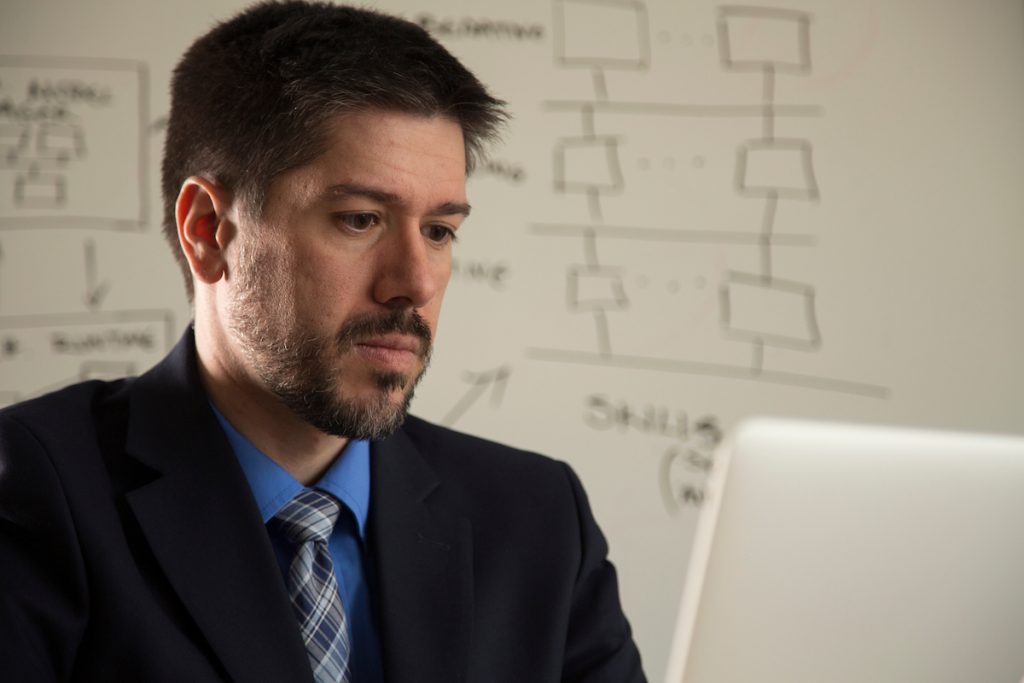A $325,000 grant from the W. M. Keck Foundation is funding a project that has the potential to establish Northern Arizona University as a leader in informatics education, particularly for underrepresented student groups.
NAU’s School of Informatics, Computing, and Cyber Systems (SICCS) will use the grant to broaden access through newly designed, integrated learning experiences, including more classroom and research opportunities for undergraduate students, and by supporting the recruitment and retention of students from underrepresented groups. This work builds on a substantial recent university investment in informatics education and research.
Informatics, which is a science that fuses computer science, statistics and the sciences, is necessary in fields of health care, research, engineering, education and other STEM fields. Colleges and universities are struggling to address these needs in the classroom to help prepare a workforce with the needed skills, in large part because current informatics curricular structures and learning techniques limit student access. There also is a significant underrepresentation of women and minority students in the field.
Through the project, led by John Georgas, associate professor and the associate director for research and graduate programs in SICCS, participating students will develop informatics literacy and expertise, preparing them with the skill sets needed by the rapidly growing informatics-driven health care, technology, environment and scientific sectors in Arizona and the American West. Georgas is collaborating on this work with three other SICCS faculty: Chris Doughty, Crystal Hepp and James Palmer.
“Informatics is increasingly at the center of contemporary science and engineering, both in academia and business, so there is a critical need to better educate students in this interdisciplinary skillset,” Georgas said. “Our emphasis on hands-on learning based on work that benefits human health and the environment is particularly important for groups of students traditionally underrepresented.”
This is an important strategy that not only addresses the workforce shortage of professionals in informatics areas by promoting diversity and opportunity in the field but also helps NAU become even more of a welcome space for students of all backgrounds and academic interests.
The W. M. Keck Foundation was established in 1954 in Los Angeles by William Myron Keck, founder of Superior Oil Co. Keck envisioned a philanthropic institution that would provide far-reaching benefits for humanity. In recent years, the foundation has focused its support on science and engineering research, medical research and undergraduate education programs. Keck believes a high-quality, well-rounded college education is vital for tomorrow’s workforce and leaders. The foundation’s undergraduate program promotes distinctive learning and research experiences in science, engineering and the liberal arts at undergraduate colleges, or through national organizations that address undergraduate needs.
The Keck Foundation’s goals tie directly into NAU’s focus on research-based learning and enable students and their faculty mentors to make research contributions in areas that have significant potential to benefit important human and environmental health concerns. NAU’s geographic proximity to the Colorado Plateau metropolitan, rural and indigenous communities are uniquely suited to provide a living laboratory that will give students tangible access to learning opportunities and a first-hand view of the impacts of their work in these areas.
“This project supports several of NAU’s key strategic goals—student success and access to research-based training and learning opportunities,” NAU President Rita Cheng said. “We are thankful for the funding from the W. M. Keck Foundation, which also will address important workforce needs for our state and the nation.”
In addition to Georgas, Vice President for Research David Schultz, College of Engineering, Forestry, and Natural Sciences Dean Paul Jagodzinski and SICCS director Paul Flikkema were directly involved with developing the project proposal.



